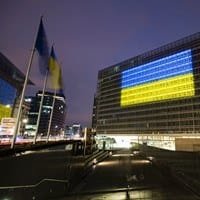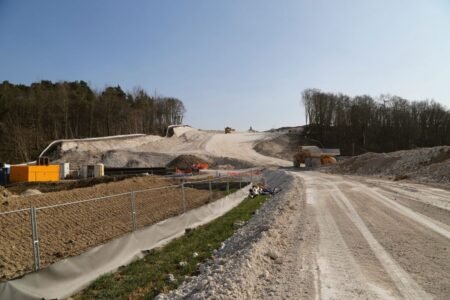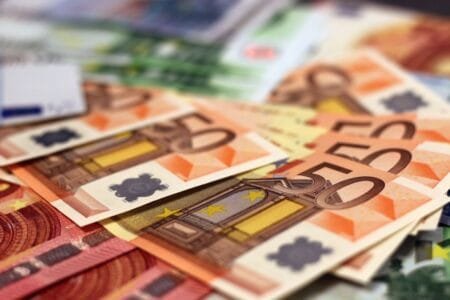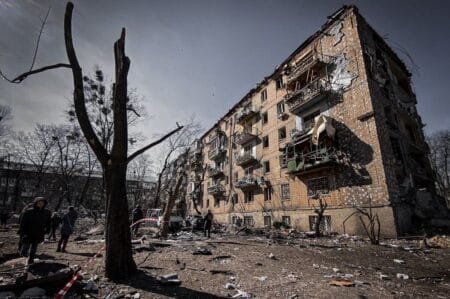(BRUSSELS) – On the one-year anniversary of Russia’s full-scale invasion and brutal military aggression against Ukraine, the EU Council on Saturday imposed its 10th package of sanctions on Russia.
Within the comprehensive tenth package of sanctions, the Council decided to impose restrictive measures on an additional 87 individuals and 34 entities.
“Today we are targeting 121 individuals and entities who are instrumental in the continuation of this brutal war, including those responsible for military activities, for political decisions, who are polluting the public space with disinformation and malicious narratives, adding to the military warfare also through information warfare,” said the EU’s foreign policy chief Josep Borrell: “We are also targeting those involved in inhumane deportations and forced adoption of Ukrainian children to Russia, as well as those those responsible for the development of drones that are targeting Ukrainian civilians and civilian infrastructure.”
The 121 new listings cover various categories of individuals and entities, who all contribute in their own way to the war:
At political/institutional level, the Council designates key decision makers, such as:
- new Members of the Federation Council of the Russian Federation since 20 December 2022, including the representative of the illegally annexed so-called “Luhansk People’s Republic” and Deputy Secretary of the General Council of the “United Russia” Party
- 19 Deputy Ministers and a number of Russian Government officials, including Heads of federal agencies
- 4 Deputies of the State Duma
- the All-Russia People’s Front and 5 individuals related to it. The movement All-Russia People’s Front (ONF) is organising a social campaign “All for Victory!” through which it collects physical and financial donations to support the military units of the so-called “Donetsk People’s Republic” and “Luhansk People’s Republic”
In the Russian military and defence sector, a substantial number of designations are adopted including Russian military leaders and two military commanders of the Wagner group deployed in areas of Ukraine where atrocities against civilians were committed, companies manufacturing missiles, drones, aircrafts, military vehicles, warships or control systems, and supplying the Russian Armed Forces.
The Council is also imposing sanctions against individuals responsible for the deportation and forced adoption of Ukrainian children. The deportation of innocent Ukrainian children from occupied areas by Russian forces to be adopted to Russian families is a clear violation of human rights and international law. To address the continued occupation of areas of Ukraine, the Council also targeted proxy authorities, such as the so-called prosecutors in the four illegally annexed Ukrainian regions of Luhansk, Donetsk, Kherson and Zaporizhzhia and the so-called Ministry of Emergency Situations of the Donetsk Peoples Republic.
The Council is also imposing sanctions on organisations, like Rossyia Segodnya, and individuals including writers, presenters and high-level executives in major TV channels and media groups, propagandists and other personalities. They are polluting the public space with disinformation, adding to the military warfare through information warfare
Four Iranian individuals involved in the elaboration and supply of drones used by Russia against Ukraine are sanctioned.
Today’s listings also cover economic actors in sectors providing a substantial source of revenue or supporting financially the government of Russia. The sanctioned entities include banks such as Alfa-Bank, Rosbank, and Tinkoff Bank, the National Wealth Fund of the Russian Federation, and the Russian National Reinsurance Company.
Altogether, EU restrictive measures in respect of actions undermining or threatening the territorial integrity, sovereignty and independence of Ukraine now apply to a total of 1473 individuals and 205 entities. Those designated are subject to an asset freeze and EU citizens and companies are forbidden from making funds available to them. Natural persons are additionally subject to a travel ban, which prevents them from entering or transiting through EU territories.
The European Union commits to standing by Ukraine with steadfast support “for as long as it takes”.
EU response to Russia’s invasion of Ukraine (background information)








